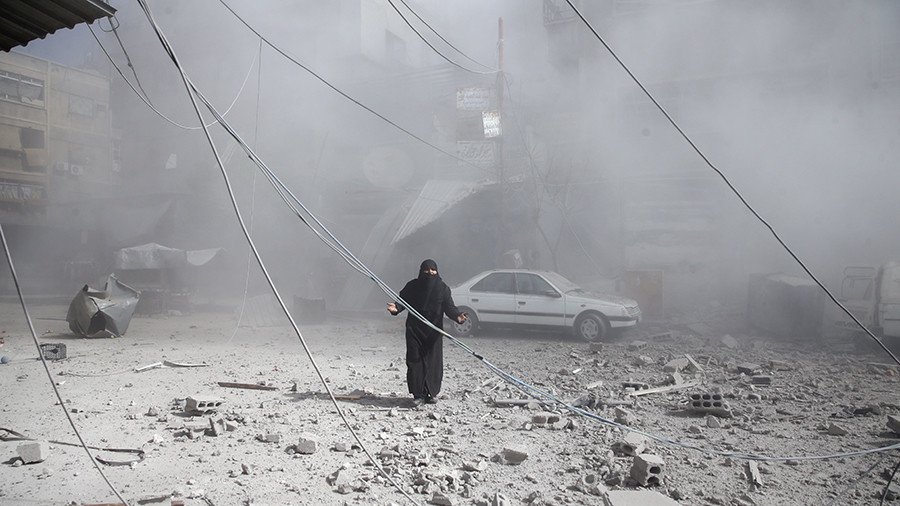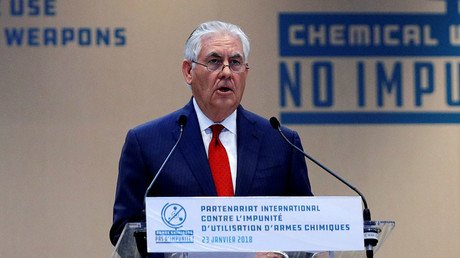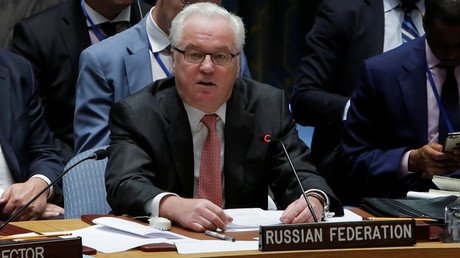No reliable evidence of chlorine use by Syrian govt – French defense minister

France has no reliable evidence that the chemical agent chlorine was used by the Syrian government forces, and thus cannot yet speak of a ‘red line’ having been crossed, the French Defense Minister said.
“We have some indications of possible chlorine use [in Syria], but we have no absolute confirmation,” Minister Florence Parly told France Inter radio on Friday. “So we, alongside the others, are working on trying to confirm this, as we clearly have to get the facts straight.” Parly did not specify who else was engaged in the confirmation effort.
Currently, Paris is not ready for a harsh response alluded to by French President Emmanuel Macron in May 2017, according to the country’s defense chief. At that time, Macron said that the use of chemical weapons in Syria is “a red line” for France and would result in “immediate reprisals.”
France is not in a position to say whether that ‘red line’ has been crossed at this point, due “to the lack of certainty on what happened in Syria,” Parly admitted. On Wednesday, French Foreign Minister Jean-Yves Le Drian seemed more inclined to lay the blame on the Syrian government, saying that “all indications show us today that chlorine is used by the regime right now in Syria." He also called for caution, however, admitting that the evidence “wasn’t completely documented.”
Allegations about a possible chlorine-gas attack in Syria emerged in January this year. They were made by quite controversial pro-militant sources – the Syrian Civil Defense group, better known as the White Helmets and the UK-based Syrian Observatory for Human Rights (SOHR). These allegations have not yet been independently verified so far.
The US has consistently put the blame on the Syrian government or Russia, but failed to provide credible evidence on every occasion.
Last week, the Pentagon acknowledged that it is unable to confirm if nerve agents such as sarin were used by Damascus. "We do not have evidence of it,” US Defense Secretary James Mattis told journalists Saturday.
He said the only information the US has been able to obtain so far about the alleged sarin use came from “other groups on the ground, NGOs, fighters on the ground” and simply “people who claim it's been used.”
Chemical weapons have been used by the US to justify direct military action against Syria. In 2017, President Donald Trump ordered a cruise missile strike on the Syrian airbase in Shayrat following an alleged chemical weapons attack on the rebel-held Syrian town of Khan Sheikhoun, where up to 100 people were reportedly killed.
The UN and Organization for the Prohibition of Chemical Weapons (OPCW) then presented several reports on their findings concerning the use of chemical weapons in Syria, including the April attack. Russia repeatedly criticized the reports, saying they were full of discrepancies, cherry-picked facts, and based on statements from sources whose authenticity was questionable.
If you like this story, share it with a friend!
















